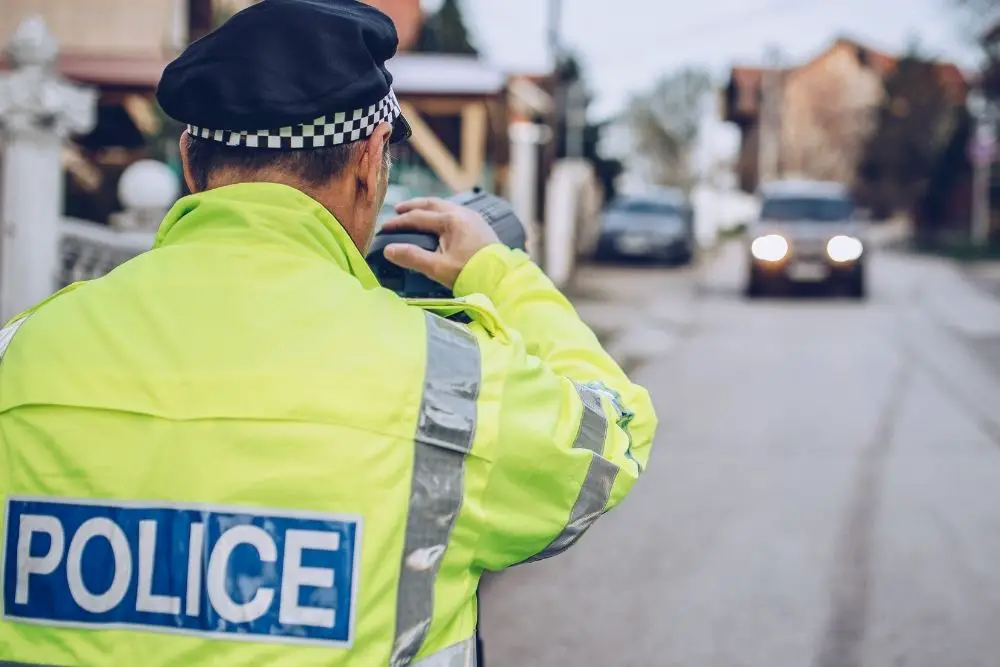Last Updated on May 11, 2022 by Fair Punishment Team
So you have just been caught speeding, not ideal. Maybe you were in an emergency? Or did you get caught in an accident? Whatever it was, you will need to understand the following process of your speeding offence.
A speeding ticket is the last thing anyone wants. Speeding violations can result in suspension of your licence and an increase in your insurance rates. There will also be fines and court fees.
Despite this, it is possible to avoid or at least reduce the impact of a speeding ticket. Here are some tips, tricks and defences that you can use to avoid your speeding ticket.

Speeding Ticket Options
If you pay your speeding ticket and accept the consequences, you won’t have to go to court. Alternatively, you can try to negotiate the penalty with the court and prosecutor, a process known as mitigation. Depending on the court’s discretion, you may be able to request a negotiation before your hearing.
Find out the options available on your court’s website or by contacting the clerk’s office. Mitigation typically involves admitting to an offence and providing information to support your request for leniency.
Your driving record may not be affected if you are successful in paying all or part of your ticket, or if you take a course instead of paying the ticket. You may receive a reduction in the amount of your fine, or be given more time to pay it.
Preparing For Court
You will have to go to court to prove you weren’t speeding if you decide to fight the ticket. Things are unlikely to go your way if you show up for the hearing without having prepared. Get as much evidence as you can that you weren’t speeding, such as GPS data from a smartphone app or a photograph that shows the speed limit sign was covered up or wasn’t visible.
You should arrange for your passenger to attend court as a witness if you had one at the time of the alleged speeding violation. Make a list of some questions to ask the issuing officer, focusing on areas that will strengthen your case, such as her memory and speed-clocking experience.
If you received a traffic ticket for speeding because of a criminal offence, like driving with a suspended licence, you should consider seeking the help of an experienced traffic ticket attorney.

Types Of Speed Limits
It is very important to know the nature of the speed limit you are accused of violating before you fight your ticket in court. The majority of states will use three basic types of speed limits: absolute, presumed and basic.
An absolute speed limit means that if the signs says 60 mph and you have driven at a speed of 61 mph, then you have broken the law. There are only a few defences that are available for this type of speeding offence including claiming you had an emergency or avoid serious damage or injury to yourself or others.
A speed limit offence will involve driving at an unsafe speed that correlates with the conditions at the time. The speed limit can be altered depending on the road, traffic or weather. For example, on the highway, if there are high volumes of traffic then there could be warnings to slow down. If you continue at the regular speed limit you will end up breaking the new imposed speed limit.
The two defences for presumed speed limit violations are claiming you were not exceeding this limit or that you were driving safely in relation to the conditions at the time. The basic speed law will prohibit driving at an unsafe speed, even if that speed is below the regular speed limit.
This is usually referred to as driving too fast for the conditions. In particular after accidents, police will often give speed limit violations as they believe the accident was caused by someone driving too fast. If you were below the posted limit there is a form of defence to combat this in court.
The strongest form of defence is to state that the accident was partly or entirely someone else’s fault or that it could have occurred as a result of a freak act of nature. Acts of nature that you could describe might be a sudden gust of wind, a defect in the highway or faulty signs and signals.
Attending The Court Hearing
If this is your first time at a court hearing, it can be quite a daunting prospect. However, it is important to stay confident and say the correct information and defences to not have to pay your speeding ticket.
Whilst arriving at the hearing, it is important to make a good first impression. Arrive on time, dress smart and be polite to the staff that work at the court. When asked, you will need to present your defence and answer any questions that the judge might have for you.
If you have supporting witnesses, call them up to support your version of events as this will go a long way to support your defence.
If the issuing officer does not attend your hearing, then the ticket will be dismissed. Although this could be the case with your court hearing, it is still important to prepare your defence in the case that the issuing officer does arrive.
